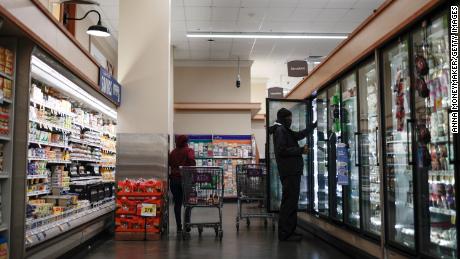Biden now sports the lowest net economic rating of any president at this point through their first term since at least Jimmy Carter in 1977.
In the latest CNN/SSRS poll, Biden comes in with a 44% approval rating to 55% disapproval rating among registered voters on his economic performance. This makes for a -9 point net approval rating. The average of all polls taken in December is quite similar with Biden at -13 points on the economy.
To put that in perspective, the average president at this point in the last 44 years (since we have been polling on the topic) had a net economic approval rating of +5 points. That means Biden’s is 18 points worse than the average.
The best rating, perhaps unsurprisingly, belonged to George W. Bush following the September 11 attacks. He was at +37 points at a time when his approval ratings on all issues were high thanks to the “rally around the flag” effect.
Notably, Biden’s net rating is worse than his two immediate predecessors, Barack Obama in December 2009 and Donald Trump in December 2017. Both Obama and Trump had net approval ratings on the economy of -4 points.
The economy was, by a lot of measures, in deep trouble in December 2009. The University of Michigan consumer sentiment index was well below average at 72.5. Today, it’s at a similar 70.4. Yet, Biden’s ratings on the economy are considerably worse.
Trump was a different story. Consumer sentiment was at 95.9 in December 2017, but Trump’s overall net approval ratings (-20 points) were so bad that they were dragging down his popularity on a host of issues.
Interestingly, Trump’s problem then is the opposite of Biden’s now. Back in late 2017, most voters were not concentrated on the economy. It was not the nation’s top problem. Ergo, what Americans saw as a relatively stronger economy wasn’t translating into helping Trump.
Today, the economy is viewed as the top problem for both the nation and for people’s families, so the low consumer sentiment is dragging Biden down. A Monmouth University poll released earlier this month found that 41% listed economic concerns (either everyday bills and groceries; inflation; job security and employment; or the economy overall) as the top issue for their family. That’s far more than for any other issue.
Inflation, in particular, seems to be a big issue for Biden. Just 28% of Americans approved of the job he is doing to handle inflation in a recent ABC News/Ipsos poll. This comes as more voters said they were concerned about inflation than any other issue in a December Fox News poll, and only 22% said the Biden’s administration efforts to get inflation and rising prices under control were helping. The plurality (47%) said they were hurting.
Indeed, the issue of inflation hurting a president helps to put Biden’s bad position in perspective. The public reaction now looks at least somewhat similar to how the public was reacting to another president under whom inflation was an issue: Carter.
A lot of Republicans like to draw parallels between Carter (who was a one-term president) and Biden. And at least early on, when it comes to public perceptions of the economy and inflation, there are some similarities between them.
Carter’s economic net approval rating of -8 points in an early January 1978 CBS News/New York Times poll was the lowest around this point in a presidency before Biden’s -13 points. The economy, and particularly inflation, was listed as the nation’s top problem in a late October 1977 Gallup poll.
Importantly, far more Americans (52%) in a November 1977 Time Magazine poll thought that Carter was not making a good start to fighting inflation than thought he was (21%). In other words, Americans felt his efforts were not enough to control inflation.
The good news for Biden is that it’s far from clear what the economy and inflation will look like in the future. Carter ended up losing in 1980, in part, because voters felt he didn’t solve the economic crisis. Biden, on the other hand, still has nearly three years until the 2024 election, although his party may still suffer in the midterms because of fears voters have about the economy.





